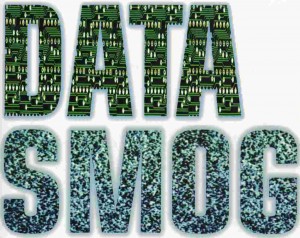I recently read an article from a Singaporean blog on how data smog is now slowly consuming the internet. What is data smog you may ask. Data smog is a term coined by Journalist David Shenk. It deals with the author’s idea of how the technology revolution would shape the world at large and how the incredible amount of data available on the internet would make it more difficult for the average individual to sift through and separate fact from fiction.
According to David,” with the advance of technologu, we have been able to progress in terms of society, economy, and even health. Communication is instantaneous, knowledge is abundant, and as humans we try to keep up with this expansion of data that continues to accumulate from around the world.
However, it is this overwhelming amount of information that is defined as data smog; “this unexpected, unwelcome part of our atmosphere, an expression for the noxious muck and druck of the information age.
The wealth of information that is so beneficial for us is harming some because of the sheer amount of it at such a fast rate, “The sheer volume of information which many of us are exposed to every day may actually impair our performance and add stress to our lives.
We may be unaware of this but each time we get onto the internet we are overwhelmed by too much information and date, accessing too many different opinions and having too many choice. This brings me back to hypertext for a little bit. Hyperlink has helped us run though internet pages more proficiently but because it connects us so quickly to so many pages and information is that beneficial to our health? Not many people are made aware of data smog. Because we are so unaware of the health issues that it may cause many people fall in, maybe not physically but fall into a state of bad mental health. I’ve done a quick research on data smog and found out that there are a few ways to avoid being overwhelmed by all the information we get online.
Ways in which to ‘beat the smog’:
- Spend some time each week without your pager or cell phone.
- Resist advertising – never buy a product based on unsolicited email (spam).
- Go on periodic “data fasts.” A weekend in the country away from the telephone can rejuvenate a smogged-in brain.
- Write clearly and succinctly. Verbose writing is wasteful and difficult to read.
- Skim newsletters and magazines and rip out a copy of an article or two that you really want to read and digest.
- Filter your email. Many email programs allow you to set “filters” which send unwanted email directly to the trash. It is worth taking the time to do this.
- Do not forward chain letters, urgent messages about email viruses, or claims that Someone will send everyone thousands of dollars. These things clog up everybody’s inbox with worthless stuff.
- Organize your Web bookmarks or favourites. Keeping these in meaningful folders will go a long way toward helping you really find that site you are looking for.

